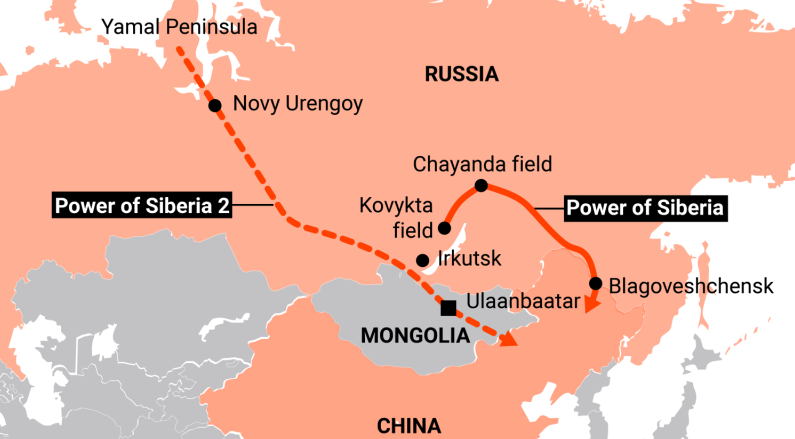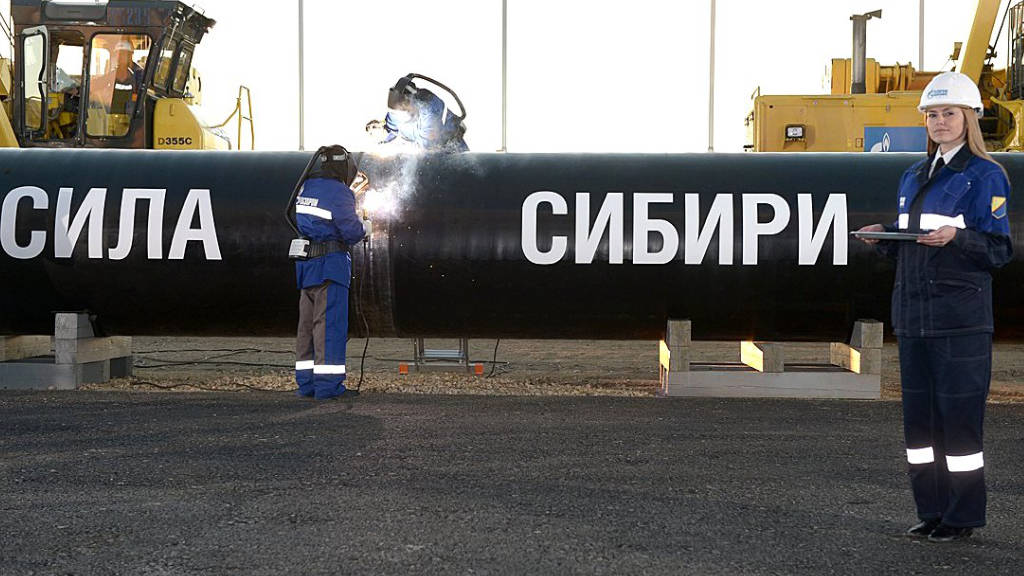China’s interest in the construction of Russia’s proposed Power of Siberia 2 pipeline, which would deliver gas via Mongolia, has intensified following the outbreak of the conflict between Iran and Israel, according to sources in Beijing.
The planned pipeline would allow up to 50 billion cubic meters (bcm) of natural gas to be delivered annually from the Russian Arctic to China via Mongolia.
Political sources in China have said that the recent Iran-Israel conflict has raised concerns within the Chinese government about the reliability of oil and gas supplies from the Middle East, prompting policymakers to explore alternative energy sources.
China imports about 30% of its gas as LNG from Qatar and the UAE through the Strait of Hormuz—a route for about 20% of the world’s oil—which Iran has threatened to close in response to the US strikes.
Chinese “teapot” refineries have also grown reliant on discounted Iranian crude, with analysts estimating that over 90% of Tehran’s oil exports now go to China—despite US sanctions aimed at curbing the country’s oil sales abroad.
Wei Xiong, head of China gas research at Rystad, said, “The escalation of the Middle East tensions underscores the severe consequences of a potential blockade in the Strait of Hormuz. A blockade of the chokepoint could trigger a major shift in Beijing’s LNG supply, with China moving from being over-contracted to a supply deficit.”
Although a ceasefire is currently in place, the recent conflict has prompted Beijing to seek alternative energy sources, according to analysts and officials. China is also looking to increase oil imports from Russia, which already supplies about a fifth of its crude oil. Moscow is keen to oblige as it seeks to diversify its energy export markets amid Western sanctions and reduced European demand.

The Power of Siberia 2 pipeline is seen in Beijing as a strategic move to further diversify supplies and strengthen energy security in the face of rising geopolitical uncertainty.
Aleksander Gabuev, the director of the Carnegie Russia Eurasia Center, stated that “The volatility and unpredictability of the military situation have shown the Chinese leadership that a stable land-based pipeline supply has geopolitical benefits. Russia could benefit from that.”
China is seeking closer ties with Russia as the White House signals efforts to drive a wedge between the two nations, according to sources familiar with Beijing’s policymaking. Economic cooperation has continued to grow despite sweeping Western sanctions, with bilateral trade reaching a record US$245 billion in 2024.
The latest situation with the Power of Siberia 2 is that Mongolia is currently involved in environmental assessments, while Presidents Putin and Xi have both asked their governments to expedite the commissioning process.
Further Reading

 Русский
Русский













